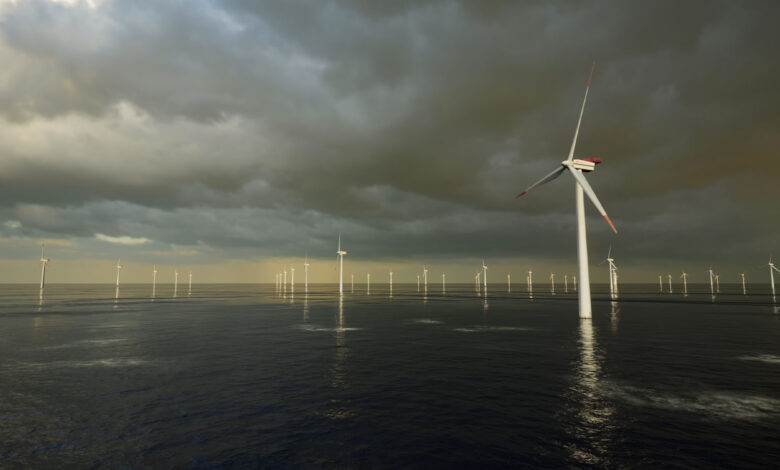Four south coast offshore areas proposed

The newly-published draft South Coast Designated Maritime Area Plan (DMAP) has identified four proposed areas off the south coast for offshore wind projects.
The four maritime areas proposed for offshore renewable energy projects have been identified following a comprehensive environmental assessment process and an almost year-long engagement process with coastal communities and stakeholders, de-risking the DMAPs as much as possible.
The draft South Coast DMAP proposes that a first offshore wind project with a capacity of approximately 900MW will take place in Tonn Nua, off the coast of County Waterford, and will aim for deployment by 2030. It further proposes that, over the next decade, further offshore wind projects will be developed in the areas of Lí Ban, also off the coast of County Waterford, and Manannán and Danu, both off the south coast of County Wexford.
The proposal comes in the aftermath an independent economic analysis, published alongside the draft South Coast DMAP, which highlights the potential economic benefits associated with implementation of the plan, which could deliver inward investment of €4.4 billion and an estimated 49,000 full-time equivalent (FTE) years of employment to the economy.
The analysis further highlights that more than 65 per cent of inward investment and employment opportunities could be captured by the south coast region.
Welcoming the draft South Coast DMAP, Minister for the Environment, Climate and Communications Eamon Ryan TD said: “This is a hugely significant milestone; the first time the State has developed a forward spatial plan for renewable energy at this scale. Since taking office, it has been a priority of mine and this government’s to overhaul the regulatory and legislative system so that we could get to this point.
“We can now plan to run an auction and the winners can then proceed to deal with a brand new purpose developed regulator [MARA] before applying to An Bord Pleanála for development permission.”
Following publication on 3 May 2024, the draft South Coast DMAP underwent a six-week statutory public consultation period, which concluded at the end of June.
In numbers: Proposed maritime areas
The draft South Coast DMAP puts forward four proposed maritime areas, within which future deployment of fixed offshore wind (fixed-bottom turbines) may take place.
These are as follows:
Tonn Nua (New Wave), situated off the coast of County Waterford:
- encompasses a total marine area of 312.6km2
- distance to shore varies from between 12.2km along the western boundary to 12.4km along the northern boundary
- mean water depth of 57 metres, with a minimum water depth of 48 metres and a maximum water depth of 69 metres, giving an overall range of 21 metres
- With a typical density of 4.5MW/km2, a 900MW development would use approximately 65 per cent of the total marine space within Tonn Nua
Lí Ban (the Mermaid Saint), situated off the coast of County Waterford:
- total area of 486km2
- distances to shore vary between 49km along the western boundary and 29km along the northern boundary
- mean water depth of 71 metres, minimum water depth of 66 metres, and a maximum water depth of 76 metres, giving an overall range of 10 metres
Manannán (named after a sea god associated with Ireland and a divine lord of the Tuatha Dé Dannan) is off the south coast of County Wexford:
- total area of 342km2
- distance to shore varies between 52km along the western boundary and 27km along the northern boundary
- mean water depth of 69 metres with a minimum water depth of 64 metres and a maximum water depth of 72 metres, giving an overall range of 8 metres
Danu (mother of the Tuatha Dé Danann people and the Celtic goddess of nature), situated off the south coast of County Wexford:
- total area of 304km2
- distance to shore varies between 52km along the western boundary and 27km along the northern boundary
- mean water depth of 67 metres with a minimum water depth of 55 metres and a maximum water depth of 78 metres, giving an overall range of 23 metres





